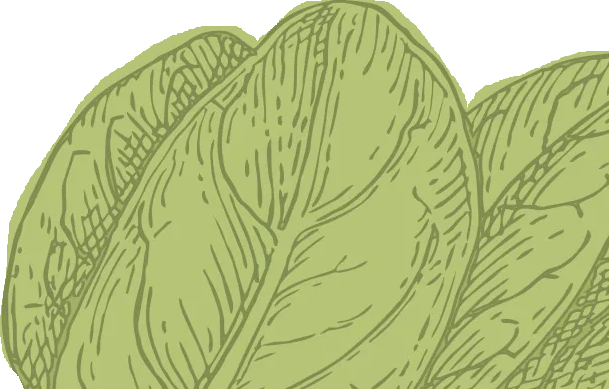Gastrointestinal problems in dogs: symptoms, causes and treatment options
In this article you will learn:
- What symptoms can occur with gastrointestinal problems
- What causes gastro-intestinal problems
- Which home remedies can be used for gastrointestinal problems
- When to seek veterinary advice
 Author: Carla Steffen
Author: Carla Steffen
 Proofreader: Veronika Hajek
Proofreader: Veronika Hajek
Symptoms, Causes and Treatment of Digestive Problems in Dogs
In this article you will learn:
- What symptoms can occur with gastrointestinal problems
- What causes gastro-intestinal problems
- Which home remedies can be used for gastrointestinal problems
- When to seek veterinary advice
Do you think your pet's belly looks bloated or do you notice that your four-legged friend is hunching over? These symptoms can be signs of gastrointestinal problems in your pet. Find out what the causes could be and what home remedies you can use to relieve your pet's pain here:
Bad breath or flatulence? These are the signs you should look out for
The problem with gastrointestinal problems in our furry friends is that the symptoms are not always clear and individual symptoms can be the cause of various gastrointestinal problems. Symptoms are often very general signs of malaise. Typical symptoms can be the following:
- increased, unpleasant mouth odor
- Diarrhea or other changes in stool
- vomiting or gagging
- Restlessness, constant walking around (in combination with excessive salivation, unsuccessful gagging and pale gums, this can be a sign of gastric torsion or intestinal obstruction)
- frequent licking, swallowing, salivating or smacking (common causes of heartburn)
- flatulence
- sensitivity to touch on the abdomen
- Abdominal noises such as rumbling or gurgling
- significant weight gain or loss
- loss of appetite
- Curvature of the back or a cramped posture
- high need for sleep
In addition, signs such as increased eating of grass can be an indication of your furry friend's desire to vomit.
Causes of gastrointestinal problems in dogs
Often, the digestive problems or gastrointestinal problems themselves are symptoms of another illness. This does not always have to be serious. Causes such as medication, vaccination reactions or allergies and intolerances can also be the cause of gastrointestinal problems. On the other hand, gastrointestinal viruses, autoimmune diseases or poisoning can also trigger gastrointestinal problems. For this reason, common causes of gastrointestinal problems are listed here:
Due to stress
Stress can upset our furry friends' stomachs. Changes in everyday life, such as new pets or a new environment, can be the deciding factor. Stress can lead to diarrhea and vomiting.
Chronic stomach problems
A common chronic gastrointestinal disease is chronic gastritis. If left untreated, this can lead to stomach ulcers or even stomach perforations. Chronic gastritis is an inflammation of the gastric mucosa in which an overproduction of stomach acid attacks the stomach wall. The destruction of cells causes inflammation. If gastritis persists for a long time and is left untreated, the stomach wall becomes thinner and thinner and can even lead to stomach perforations, i.e. the stomach wall rupturing. In this case, you should go to a clinic immediately so that the stomach can be surgically closed again and the abdominal cavity can be flushed.
The wrong food
Sudden changes in food, spoiled food, food that is too cold, and even poor quality food can lead to stomach problems. Therefore, food changes should always be made step by step so that your pet's stomach can get used to the new food. Food that has been stored in the refrigerator should be left outside for half an hour before feeding or a small splash of warm water should be added.
Food allergies can also trigger stomach upsets. For example, your four-legged friend may be particularly allergic to animal proteins, but also to wheat, soy or corn. To rule out food allergies, an elimination diet should be carried out in which potential allergens are omitted from the food.
After administration of antibiotics
Some medications, such as antibiotics, can cause severe irritation to the gastrointestinal tract. If antibiotics are administered for a long period of time, stomach protection should be given. Your veterinarian can give you this in the form of a tablet or powder.
Some medications can irritate the stomach. It may therefore be necessary to give your pet a stomach protector when administering certain medications or medications for longer periods. If your pet shows signs of an upset stomach when taking medication for a longer period of time, seek veterinary advice. Please do not stop giving medication on your own initiative.
Gastric torsion or intestinal obstruction
If your dog has a gastric torsion or intestinal obstruction, you should go to a veterinary clinic as soon as possible, as these illnesses can lead to the death of your furry friend within hours. Ineffective gagging, especially spitting out water, white or blue mucous membranes in the mouth, restlessness, a hard stomach, heavy panting and increased salivation are all signs that you should go to the vet. With gastric torsion, as the name suggests, the dog's stomach twists, so that blood vessels, the stomach entrance and the stomach exit are constricted. This means that the gases can no longer escape and the stomach bloats. Gastric torsion is much less likely in small dog breeds than in large dogs.
In the case of an intestinal obstruction, the passage of food is prevented, for example due to a foreign body. This means that gases can no longer escape from the intestine.
parasitic infestation (worm infestation)
Parasites such as Giardia and other worms can cause gastrointestinal problems. Our furry friends are therefore given a deworming treatment so that they remain worm-free even when sniffing around in the forest. Furry friends from abroad in particular tend to suffer from Giardia, as these multiply through their feces. This can lead to inflammation of the mucous membranes, particularly in young dogs. This is particularly noticeable in diarrhea.
Systemic diseases such as kidney disease or liver problems
In the case of kidney disease, substances that should actually be excreted by the kidneys remain in the body, causing damage to the stomach and/or intestinal wall and gastrointestinal problems. Causes of kidney disease can be severe blood loss, poisoning or infections. Kidney disease can also become chronic . A common symptom of kidney disease is loss of appetite.
Cirrhosis of the liver or inflammation of the liver can also cause gastrointestinal problems. Here too, a loss of appetite is a symptom, but bleeding or severe vomiting can also occur in your furry friend. A veterinary practice can examine your furry friend for liver problems using an ultrasound or a blood test.
Home remedies or food changes - this is what to do:
Depending on the severity of the symptoms, a change to a light diet is recommended. You can feed your furry friend rice with tofu and carrots, as this combination is particularly gentle on your furry friend's stomach. Make sure to cook all the ingredients long enough. In addition to this light diet, you can give your four-legged friend cooled camomile tea, as camomile has an anti-inflammatory effect. You should also make sure that your furry friend drinks plenty.
When you should go to a veterinarian
If your pet is vomiting for a long time, suffering from diarrhea or pain, you should take it to a vet. You may have to collect your pet's feces to check for worms or giardia, for example. Blood in the feces or vomit is also a sign that you should visit a vet. Due to the wide-ranging and non-specific symptoms of stomach problems, it is better to visit the vet once too often than once too little.
Frequently Asked Questions (FAQ)
If your furry friend has gastrointestinal problems, you should switch to a light diet so that your pet's gastrointestinal tract is not further irritated. Our SENSITIVE LUPINE PROTEIN can also be used for this.
All dog breeds can suffer from stomach problems and intolerance.
After a medical history, your pet will have a blood sample taken which will be examined in the laboratory. An ultrasound can also be performed and if gastritis is suspected, a gastroscopy is often performed, in which a small camera is inserted through the esophagus into the stomach under anesthesia. Tissue samples can be taken here, for example, to be examined in the laboratory.








